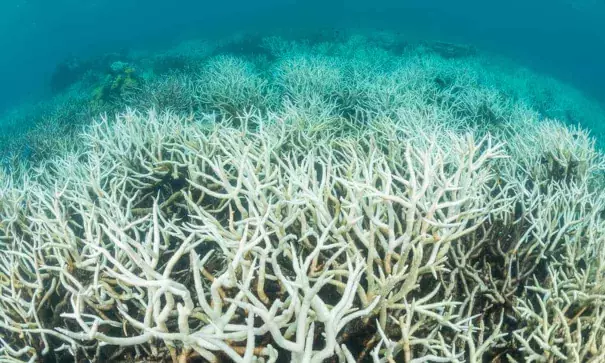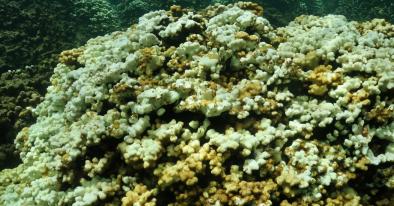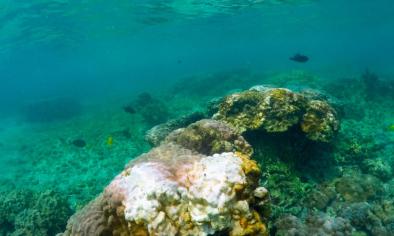Climate crisis may have pushed world's tropical coral reefs to tipping point of 'near-annual' bleaching

Climate Signals Summary: Climate change is increasing ocean temperatures, which makes coral bleaching events more frequent and severe, like was seen in the global coral bleaching event from 2014 - 2017.
Article Excerpt: Rising ocean temperatures could have pushed the world’s tropical coral reefs over a tipping point where they are hit by bleaching on a “near-annual” basis, according to the head of a US government agency program that monitors the globe’s coral reefs.
Dr Mark Eakin, coordinator of Coral Reef Watch at the National Oceanic and Atmospheric Administration, told Guardian Australia there was a risk that mass bleaching seen along the length of the Great Barrier Reef in 2020 could mark the start of another global-scale bleaching event.
Tropical coral reefs tend to be at a higher risk of bleaching during times when the Pacific Ocean is in a phase known as El Niño. The latest bleaching on the reef has hit during this cycle’s neutral phase.
...
“What we are seeing on the Great Barrier Reef and potentially elsewhere is really being driven just by anthropogenic climate change.
“If we get another El Niño, the odds are almost 100% that we will see another global bleaching event.”
...
Corals bleach when they sit in abnormally hot water for too long. Reefs and corals can recover from mild bleaching, but severe and prolonged heat stress can kill corals.
In back-to-back bleaching in 2016 and 2017, about half the reef’s corals died.
...
Eakin said that when severe bleaching causes mass mortality of corals, “those events take a decade or more for recovery. We are seeing these events far too frequently”.
As the planet gains heat from increased greenhouse gases in the atmosphere, about 90% of that extra heat is taken up by oceans. In January, a study of heat down to 2km in depth concluded that 2019 was the warmest year on record.
Eakin said ocean heat content data showed the world’s oceans were gaining heat. “There’s so much heat that has been absorbed in the upper ocean that all the coral reefs are much closer now to their bleaching threshold. As result, it’s very easy to tip them over.”
Related Content





